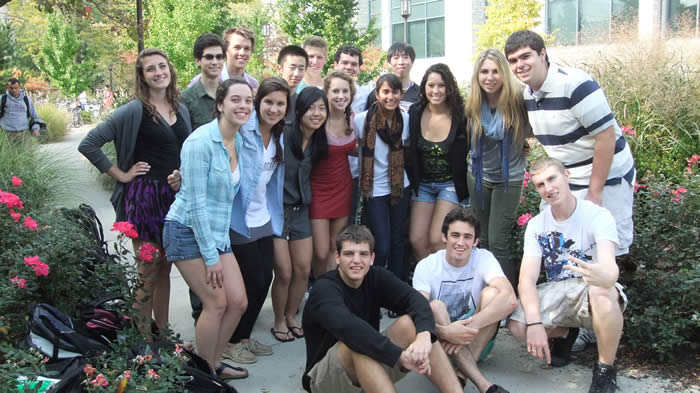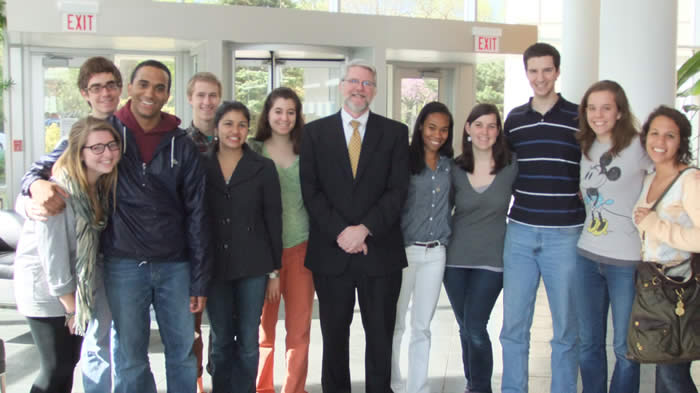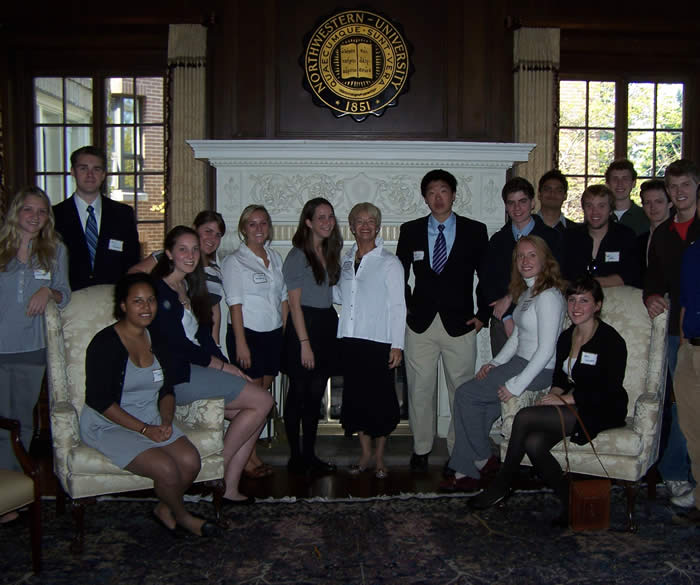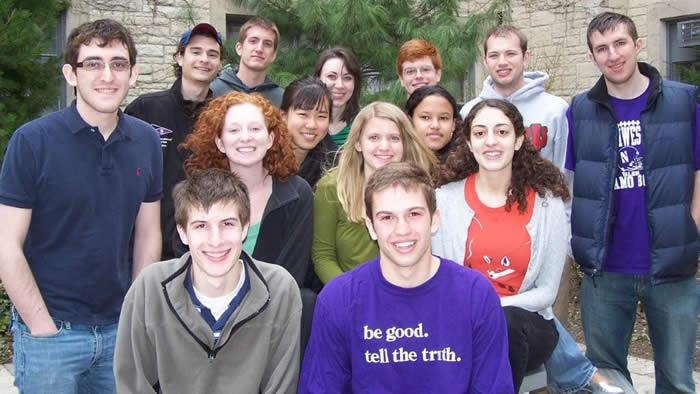Junior Year Experience
What can we learn about others and ourselves by immersing ourselves in a new community?
Students will spend part or all of their Junior year gaining a broader perspective on the topics they have explored in the three seminars they took during their Sophomore year. Students can choose either a Study Abroad program or the Engage Chicago program. They will remain in electronic contact with each other and with their Northwestern mentors, and will communicate with each other about their experiences. On their return, students will have several opportunities to meet again in person to engage in discussion and begin planning for their senior project. The guiding assumption of this component of the Brady Program is that we have much to learn from other parts of the world or nation, and that we can see our own social problems more clearly when we compare them with the customs and norms of other places.
We ask students to consider three things:
- Particularity - How do particular cultures and societies view our American place through their eyes? How do we view ourselves as new members of a particular community?
- Scope - How wide is the scope and complexity of the world? What is the extent to which I am willing to understand and embrace the complexity of a new community?
- Ingenuity - How do innovation and action solve daunting problems to achieve good places in every culture? What kind of innovative solutions can I find to address the problems faced in our community?
The Northwestern University Global Learning Office offers support and guidance to students preparing for foreign study. For more information, please visit their website.
The Engage Chicago program at Northwestern University is an immersive field study program in which Brady Scholars will have the opportunity to explore community development and social change in Chicago over the summer before either their Junior or Senior year. For more information, please visit their website: Engage Chicago.
Brady Class of 2014 studied abroad this past year in Argentina, Cuba, England, Germany, Japan, South Africa

Travel Notes From Germany
"As we came to see, sometimes the best adventures are the spontaneous ones. Accepting our fate atop the Citadelle, we started exploring the area around the health center and found a pedestrian path leading down the slope we had just climbed. It wound through a park and some picturesque gardens, all the while providing a gorgeous view of Liège. Distracted by the sights, we were surprised when we came across a World War II monument right in the middle of the pedestrian path. It was an impressive structure that attracted some other admirers, one of whom was a toddler that tried to speak to us in French. Even I, the designated translator of the trip, couldn't figure out what she was saying. This encounter would be one of the many that contributed to my belief that everyone should be comfortable with a variety of languages at a young age. The fact that I claimed to be more-than-conversational in French yet couldn’t make out the words of a 5-year-old really put the language barrier in perspective.
Brady Class of 2013 studied in Argentina, Cuba, England, France, Germany, India and Spain

Brady Class of 2012

Brady Class of 2011 studied in Argentina, Australia, Chile, Egypt, France, Germany, Japan, South Africa, and the United Kingdom

Travel Notes From Japan
"One thing I've come to realize in my time abroad so
From Germany
"My first few months in Germany have been a sampler of the country’s markedly different regions. I spent my first month in business-powerhouse Baden Württemberg, before paying a brief visit to Bavaria and moving on to the former East German state of Saxony. I finally made my way back to Baden-Württemberg for the start of the winter semester this October. If my travels in Germany have taught me anything, it is that small changes in geography amount to rather large differences in both culture and language--even within a country that, in terms of land area, is comparable to Montana. While certain regions are noted for their adherence to a clear and at least semi-official “High German,” others, such as the area around Tübingen—the city in which I am studying—are not. A simple trip of 50-100 miles might produce such a strong difference in comprehension.
While I have only just started taking actual classes at the university, I have already been struck by several differences, many of them revolving around the organization of classes. Almost all classes meet only once a week, putting more of the onus on the students to take charge of learning the material on their own. Additionally, one is registered for a class simply by showing up for class (often without filling out any attendance marker). The only proof that you were in a class consists of the knowledge in your head and a final test that you may or not take, depending on the professor. That’s enough to make anyone feel a bit uneasy.
Perhaps most interesting has been the opportunity to observe an election cycle in a foreign country. The whole month of September, leading up to the election on the
